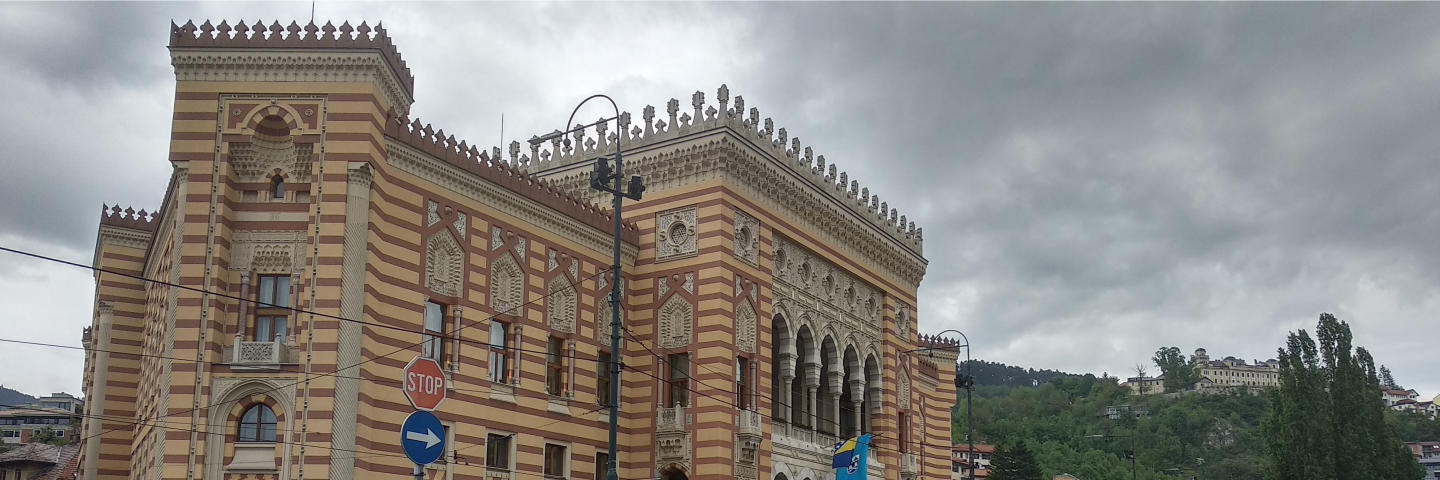
GCMC and BIH’s Peace Support Operations Training Center (PSOTC) Continue Their Long Standing Relationship to Address Peace and Collective Security Operations
By College of International and Security Studies
George C. Marshall European Center for Security Studies
SARAJEVO, Bosnia and Herzegovina (December 1, 2021) — Dr. Sebastian von Münchow and Dr. Pál Dunay made four presentations to the 2021 Euro-Atlantic Security Course (EASM) organized by the Peace Support Operations Training Centre (PSOTC). The PSOTC is a NATO Partnership and Regional training center that provides education and training modules in peace and collective security operations to military personnel, police officers and civilians from Bosnia and Herzegovina (BiH) and other Southeast European countries. The center is located near Sarajevo in Camp Butmir, the Headquarter of the EUFOR Operation Althea. Every winter, PSOTC carries out the one-week EASM Course that is attended by BiH Armed Forces personnel, political sciences students from Sarajevo, Mostar and Banja Luka and officers from countries in the region.
“I gave two presentations in Sarajevo. My first speech was on the Eurasian Geopolitical Context and its 21st Century Security Implications. The second presentation featured Russia and European Contemporary Security. I am glad that I could make it to Bosnia and Herzegovina. It was a pleasure to interact with the group and to discuss the challenges along Europe’s eastern flank,” explained Dr. Pál Dunay.
Dr. Sebastian von Münchow noted: „I gave two virtual presentations. I was asked to consider the European Union in 2030; therefore, I discussed with the course participants the potential of the EU becoming a global geopolitical player and whether it remains an economic powerhouse. My second presentation was of special importance for the audience since it focused on the EU’s capability of Peace-building in the Western Balkans. I took the opportunity to address NATO-EU Defense Relations, as well as the complex process of EU integration. I hope that conditions allow us to again travel to Sarajevo next year.”
When asked about the value of GCMC participation, Dr. Matt Rhodes, the Marshall Center’s College Chair of Area Studies added: ”Our relationship with PSOTC lasts now for more than five years. I can assure our friends in Camp Butmir that PSOTC can also count on the Center in up-coming courses. We mutually benefit from each other. I hope that our professors enrich the course participants. And I also appreciate that the attendees shared their observations on the latest developments in Bosnia and Herzegovina, as well as in the entire Western Balkans.”
The PSOTC’s EASM Course organizers thanked the Marshall Center for sending two excellent speakers. According to PSOTC, the presentations from Garmisch-Partenkirchen are an integral part of its course and fit very well into the presentations provided by NATO, Sarajevo-based embassies and international organizations, and professors from universities in Bosna and Herzegovina.”
